Exploring the Depths of Opioid Use Disorder
Opioid use disorder (OUD) presents a significant threat to global health, affecting millions while claiming thousands of lives annually. These substances, whether prescriptions like oxycodone or illegal drugs such as heroin, disrupt lives through a compelling cycle of craving and dependence. Understanding the characteristics, consequences, and solutions for opioid addiction is vital for those affected, their families, and healthcare professionals seeking to mitigate this crisis.
Symptoms and Challenges of Opioid Use Disorder
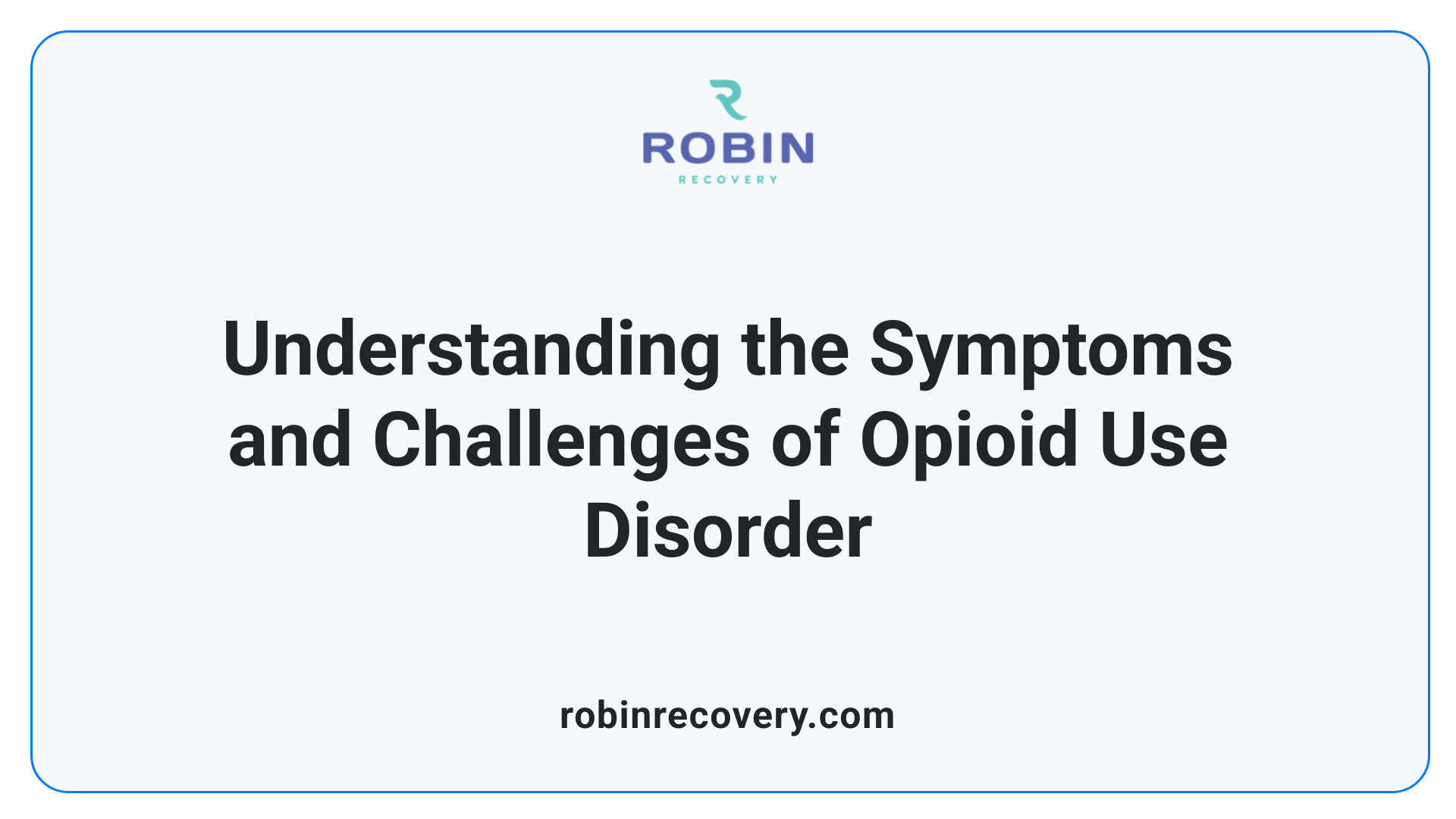
What are the symptoms of opioid use disorder (OUD)?
Opioid Use Disorder (OUD) manifests through a range of troubling symptoms. Common indicators include:
- Taking larger amounts of opioids than intended.
- Persistent unsuccessful efforts to cut down usage.
- Continued use despite adverse consequences.
- Experiencing cravings that lead to compulsive drug-seeking behavior.
These symptoms can impair daily functioning and significantly disrupt both personal and professional aspects of an individual's life.
How does OUD impact individual behavior and life?
The impact of OUD is profound, altering an individual’s behavior to align more closely with the addiction rather than their previous life priorities. This can lead to:
- Issues with relationships, resulting in social isolation.
- Loss of employment due to absenteeism or decreased performance.
- Increased risks of health complications and legal troubles.
These challenges often compound the distress associated with the disorder and hinder the path to recovery.
What is the heightened risk of relapse?
Relapse is a persistent danger for those recovering from OUD, with evidence showing that over 90% of patients can return to drug use within a month after detoxification alone. Ongoing support and a comprehensive treatment plan, combining medication-assisted treatments like methadone or buprenorphine with behavioral therapies, are critical in mitigating relapse risks. This holistic approach helps to manage cravings and stabilize the individual’s life, making recovery more attainable.
Health Risks Associated with Opioid Addiction
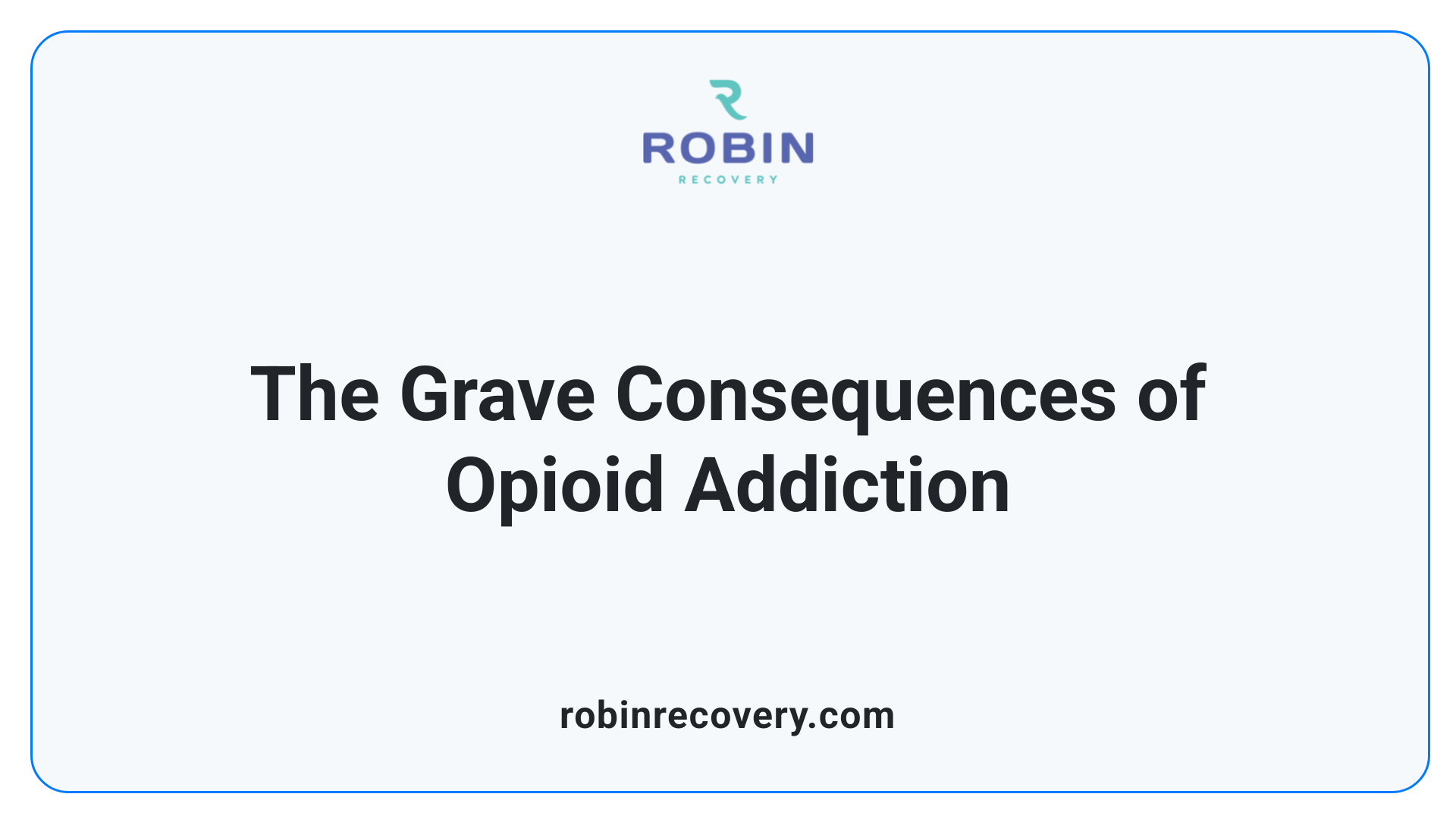
Consequences of untreated OUD
Opioid Use Disorder (OUD) is a serious and chronic condition that can lead to significant impairment in various aspects of life. Individuals may experience loss of control over their opioid use, leading to severe physical and psychosocial consequences. These can include job loss, relationship issues, and legal troubles.
The disorder is characterized by symptoms such as increased tolerance, withdrawal symptoms, and an overpowering desire to use opioids. Without treatment, individuals face a higher risk of relapse, which can further complicate efforts toward recovery.
High mortality rates and overdose risk
The opioid crisis has escalated dramatically in recent years, with over 72,000 overdose deaths reported in 2017 alone. This staggering number underscores the chronic and relapsing nature of opioid addiction, which can result in mortality rates that are ten times higher than those of the general population.
Opioid overdose can lead to respiratory failure and death, emphasizing the critical need for prevention, timely intervention, and access to treatment solutions.
Public health emergency declaration
On October 27, 2017, the opioid crisis was declared a national Public Health Emergency, illustrating the urgent need for effective strategies to combat OUD. This declaration has prompted initiatives aimed at increasing access to treatment and reducing stigma surrounding opioid addiction, fostering better outcomes for affected individuals.
Preventative Measures in the Opioid Crisis
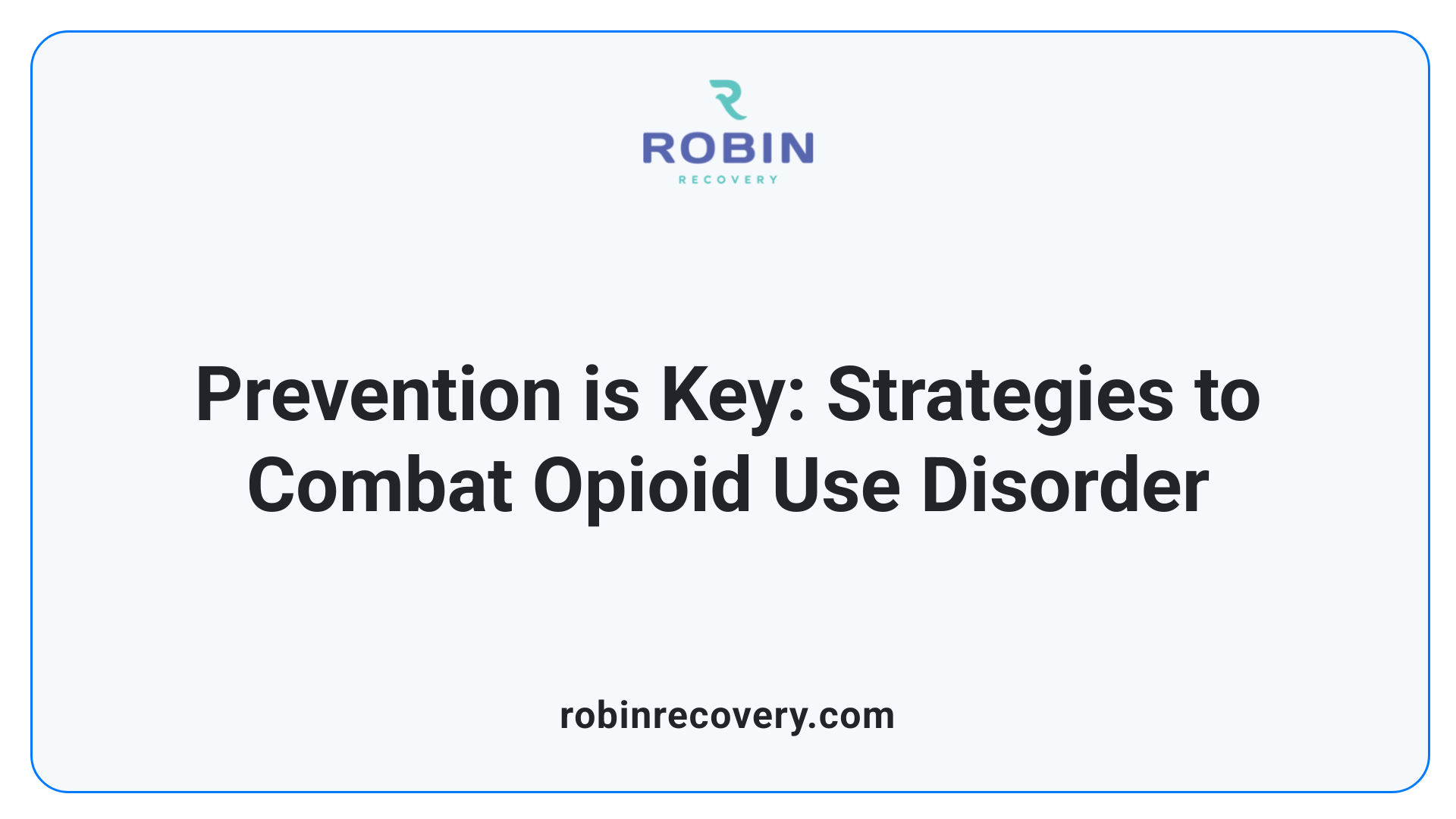
Prevention strategies for opioid use
Preventing opioid use disorder (OUD) is essential in addressing the ongoing opioid crisis. One approach is the prudent use of opioid prescriptions for pain management, recommending that opioids be used for no more than three days in acute cases. Exploring alternative pain management options can significantly reduce the risk of developing addiction.
Role of healthcare professionals
Healthcare providers play a crucial role in prevention by screening patients for substance misuse, educating them on the risks associated with opioid medications, and discussing lower dose alternatives. The campaign "Prescribe with Confidence" encourages providers to engage collaboratively with patients to manage their pain while mitigating addiction risks.
Education on opioid misuse risks
Public education about the potential risks and consequences of opioid misuse is paramount. Resources like the SAMHSA National Helpline provide information and avenues for support, helping individuals understand addiction and seek help early. Creating awareness about overdose prevention and the availability of naloxone can also save lives, empowering the community to take proactive measures against opioid misuse.
Exploring Treatment Methodologies for Opioid Addiction
What is the most effective approach to treating opioid use disorder?
The most effective approach to treating opioid use disorder (OUD) involves a combination of medication for opioid use disorder (MOUD) and counseling or behavioral therapies. Research indicates that a multifaceted strategy helps individuals navigate the complexities of addiction recovery.
Medication-assisted treatment (MAT)
MAT integrates FDA-approved medications like methadone, buprenorphine, and naltrexone. These medications are key in managing withdrawal symptoms and cravings while helping normalizing brain chemistry.
- Methadone: A full agonist, widely used for its effectiveness in maintenance therapy.
- Buprenorphine: A partial agonist that offers lower overdose risk while assisting in withdrawal management.
- Naltrexone: An opioid antagonist used primarily for relapse prevention, blocking euphoria associated with opioids.
Counseling and behavioral therapies
Counseling plays a pivotal role in addressing the psychological aspects of opioid addiction. Different therapeutic approaches can augment the pharmacological treatments effectively:
- Cognitive Behavioral Therapy (CBT): Focuses on changing drug-related thoughts and behaviors.
- Motivational Enhancement Therapy: Encourages patients to engage in the treatment process.
- Peer Support Groups: Programs like Narcotics Anonymous help build a support network.
Importance of support services
Ensuring the availability of naloxone (Narcan) is crucial for reversing opioid overdoses, with over 108,000 drug overdose deaths reported recently. Furthermore, access to support services, like SAMHSA’s National Helpline, provides individuals confidential referrals to treatment facilities and support groups—all vital tools for recovery. A comprehensive treatment plan addressing both the physical and psychological aspects is essential for successful recovery, reflecting the chronic nature of addiction and the ongoing need for care.
The Role of Medications in Managing Opioid Use Disorder (OUD)
What are the different types of treatment for opioid addiction?
There are several effective treatments for opioid addiction, primarily involving medications such as methadone, buprenorphine, and naltrexone. Each medication operates differently to support patients during their recovery journey.
Effectiveness of MOUD
Medications for Opioid Use Disorder (MOUD) have proven effective in reducing cravings and managing withdrawal symptoms. Methadone and buprenorphine, as agonist treatments, help maintain stability without producing the euphoric effects associated with opioid misuse. Naltrexone, being an antagonist, blocks the effects of opioids entirely, which can help prevent relapse after the detoxification phase.
FDA-approved medications for OUD
The FDA has sanctioned three main medications:
| Medication | Type | Purpose |
|---|---|---|
| Methadone | Full agonist | Maintenance and detox |
| Buprenorphine | Partial agonist | Reduces cravings and withdrawal |
| Naltrexone | Antagonist | Relapse prevention |
These medications are integral parts of a comprehensive treatment plan, addressing both physiological and behavioral aspects of addiction.
Long-term management importance
Long-term management of OUD is critical given the chronic nature of the disorder. Research highlights that patients receiving sustained pharmacotherapy experience lower relapse rates compared to those who undergo detoxification alone. Continued support from healthcare providers ensures ongoing treatment and helps manage the risk of relapse effectively.
Moreover, given the severe consequences of withdrawal, medically supervised treatment is essential for patients looking to overcome their addiction.
Behavioral Therapies and Support Systems in Recovery
How do medications and behavioral therapies work together in treating addiction?
Medications and behavioral therapies play complementary roles in addressing the complexities of substance use disorders. While medications can effectively alleviate symptoms of withdrawal and cravings, behavioral therapies are essential for modifying the attitudes and behaviors linked to substance use.
Therapies like cognitive-behavioral therapy (CBT) help individuals develop effective coping strategies and enable them to change their thought patterns related to drug use. This dual approach enhances the overall treatment effectiveness. For example, while buprenorphine might tackle the physical aspects of addiction, CBT can work on psychological triggers, jointly fostering a more sustainable recovery path.
Role of SAMHSA's National Helpline
SAMHSA’s National Helpline is a vital resource for individuals battling opioid addiction. Available 24/7, it offers confidential assistance and referrals to treatment facilities and support groups. The helpline connects callers to local resources without charge, making recovery more accessible to individuals regardless of their insurance status.
In 2020, the helpline managed to assist over 833,598 callers, demonstrating its crucial role in the recovery journey. While the helpline itself doesn’t provide counseling, it lays the groundwork for the recovery by directing individuals toward tailored support services.
Peer Support Groups
Peer support groups are another significant element in recovery. They provide a sense of community and shared experience, essential for individuals navigating the challenges of opioid use disorder (OUD). Programs like Narcotics Anonymous foster connections, inspire personal accountability, and create a platform for shared strategies in overcoming addiction.
By engaging with others facing similar battles, clients can develop a supportive network, which is instrumental during relapse prevention. These groups reinforce the importance of resilience and provide ongoing encouragement, crucial for long-term recovery.
Increasing Access and Breaking Down Barriers to Treatment
What is the Mainstreaming Addiction Treatment (MAT) Act?
The MAT Act plays a crucial role in enhancing access to opioid use disorder (OUD) treatment by allowing healthcare providers to prescribe buprenorphine without the prior restrictions typically associated with it. This legislative measure aims to integrate OUD treatment into standard healthcare practices, making it more accessible for patients who may not seek help due to bureaucratic barriers.
How Available are Medications for Opioid Use Disorder (MOUD)?
MOUD is vital for the management of OUD and includes three FDA-approved medications: Methadone, Buprenorphine, and Naltrexone. Methadone can only be administered in certified treatment programs, while Buprenorphine can be prescribed in outpatient settings, increasing treatment access. Naltrexone, an opioid antagonist, is most effective when used after a period without opioids, further expanding options for patients seeking recovery.
What Treatment Options Exist for Those Uninsured or Underinsured?
Individuals lacking health insurance or those underinsured can find solace in state-funded treatment programs. The SAMHSA National Helpline provides 24/7 free service referrals to local assistance programs, ensuring that help is available for everyone, regardless of their insurance status. This service significantly aids in bridging the gap in treatment accessibility, ensuring no one is left without support.
Importance of Holistic and Personalized Care Approaches
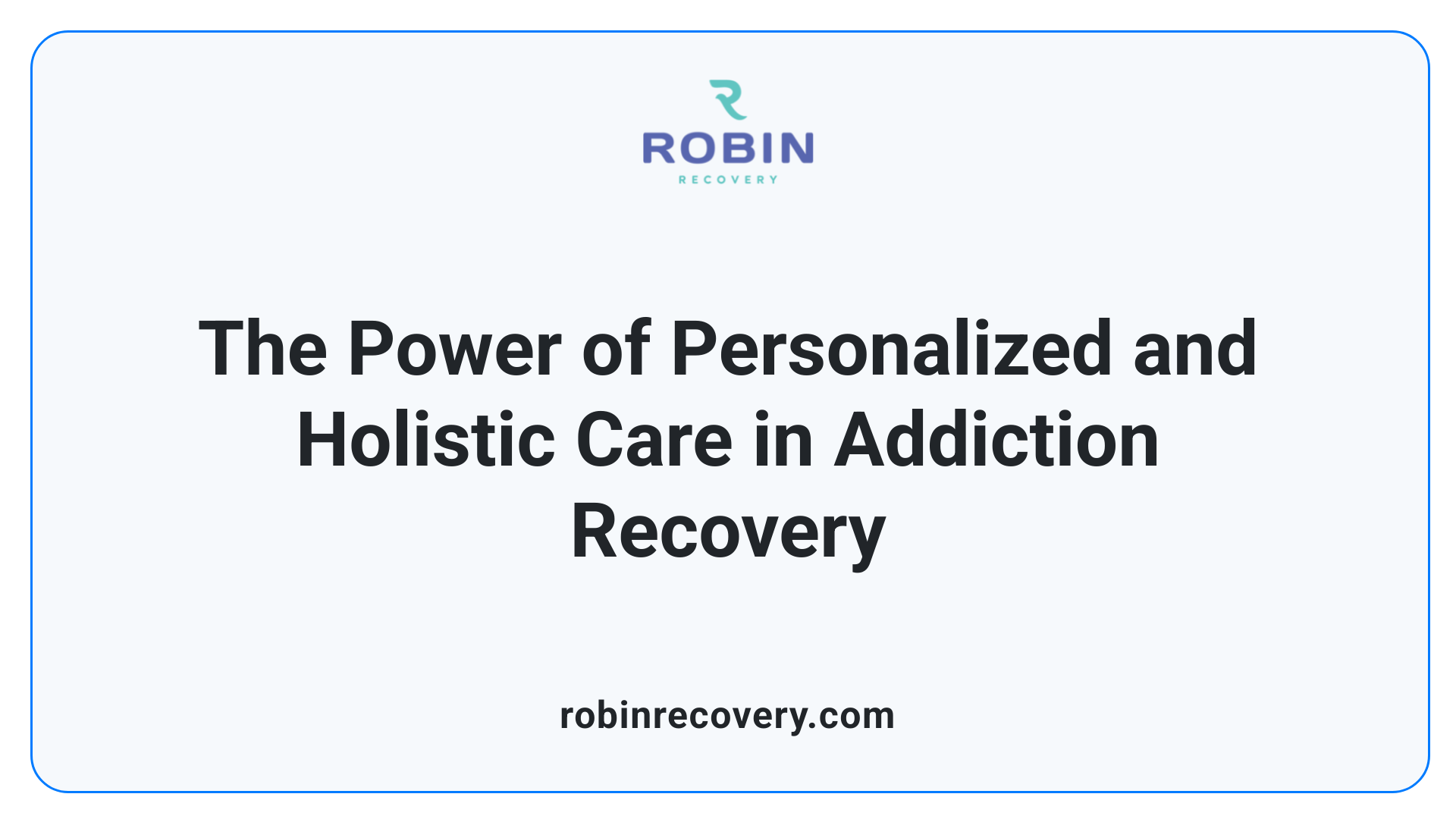
Multidisciplinary Treatment Planning
Effective management of opioid use disorder (OUD) requires multidisciplinary treatment planning. This approach integrates various healthcare professionals, including physicians, counselors, and social workers, to develop a comprehensive support system. By combining pharmacotherapy, which includes medications like methadone, buprenorphine, and naltrexone, with behavioral therapies, patients can receive treatment tailored to their unique situations.
Importance of Addressing Individual Needs
Every individual with OUD has distinct circumstances influencing their addiction and recovery journey. Personal factors such as mental health, family dynamics, and socioeconomic conditions must be considered. This personalized approach can significantly enhance treatment effectiveness and adherence.
Roles of Healthcare Providers
Healthcare providers play critical roles in facilitating recovery. They not only prescribe medications but also offer essential supportive counseling and advocate for the importance of screening for OUD in primary care. Ensuring that patients have access to resources such as peer support groups and therapy can bolster their chances of recovery, making it essential for providers to maintain open lines of communication with their patients throughout the treatment process.
| Component | Description | Impact on Recovery |
|---|---|---|
| Multidisciplinary Team | Involves various professionals for comprehensive care | Holistic and tailored solutions |
| Individualized Treatment Plan | Tailors interventions based on unique patient needs | Increases treatment adherence and outcomes |
| Healthcare Provider Support | Essential for timely interventions and continuity of care | Enhances patient trust and communication |
The Crucial Role of Naloxone in Opioid Overdose Prevention
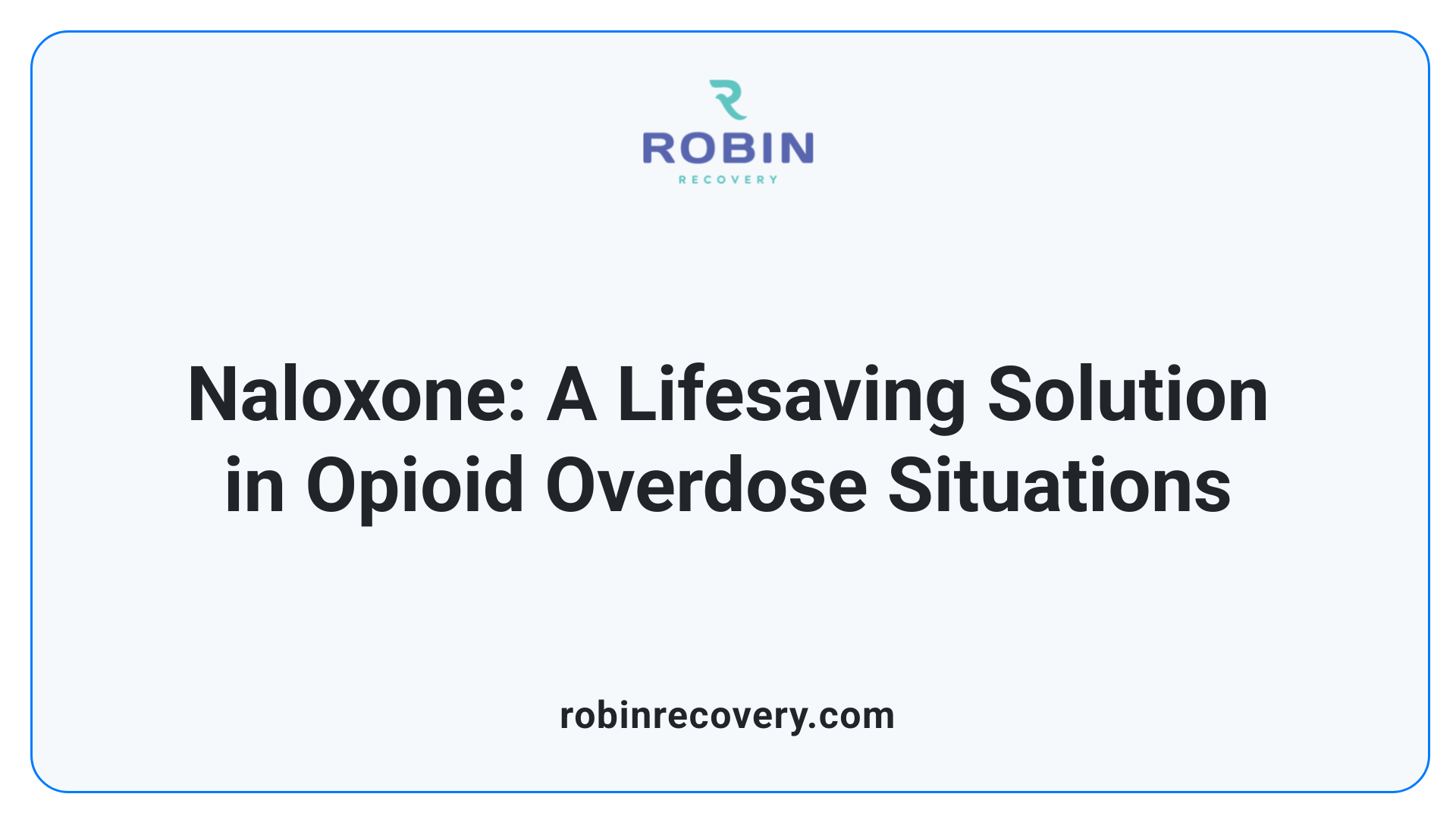
Naloxone as an overdose reversal agent
Naloxone is a life-saving medication specifically designed to reverse opioid overdoses. By acting as an opioid antagonist, it binds to the same receptors in the brain that opioids attach to, effectively blocking their effects. This rapid action can restore normal breathing in individuals who have overdosed, thus preventing fatalities. It is important to recognize that while naloxone can reverse the effects of an overdose, it only works for opioid substances and not for other drugs.
Harm reduction strategies
The use of naloxone is a crucial component of harm reduction strategies aimed at mitigating the impact of opioid addiction. By equipping individuals, families, and first responders with naloxone, the risk of fatal overdoses can be significantly reduced. Communities across the United States have begun to implement programs that distribute naloxone, especially in areas heavily affected by opioid misuse, further reinforcing the importance of these harm reduction efforts.
Training and availability of naloxone
Training on the proper administration of naloxone is essential to ensure its effectiveness in emergency situations. Many organizations offer training sessions, teaching individuals how to recognize signs of an overdose and how to administer naloxone appropriately. Widespread availability of naloxone has also been advocated by health organizations, highlighting its inclusion in local health department efforts and pharmacies. This accessibility ensures that naloxone can be reached by those in need, ultimately saving lives and fostering a supportive approach to opioid addiction and recovery.
Taking Steps Towards Recovery and Management
Opioid use disorder remains a formidable challenge, yet with a strategic combination of treatment strategies, support systems, and preventive measures, we can better manage and mitigate its impact. Promoting awareness about MOUD, embracing holistic care approaches, and ensuring the availability of critical antidotes like naloxone are all integral to reshaping the battle against this epidemic. Through commitment from individuals, healthcare professionals, and policymakers alike, we move closer to turning the tide on the opioid crisis.
References
- National Helpline for Mental Health, Drug, Alcohol Issues - SAMHSA
- How to Find Opioid Treatment Programs? - HHS.gov
- Opioid Use Disorder - Psychiatry.org
- Opioid Use Disorder - StatPearls - NCBI Bookshelf
- Opioid Use Disorder: Medical Treatment Options - AAFP
- [PDF] Opioid Addiction Treatment
- Recovery is Possible: Treatment for Opioid Addiction - CDC
- Information about Medications for Opioid Use Disorder (MOUD) - FDA
- New Ways to Help People Beat Opioid Addiction - Yale Medicine
- Opioid Use Disorder (OUD) Treatment - MedlinePlus
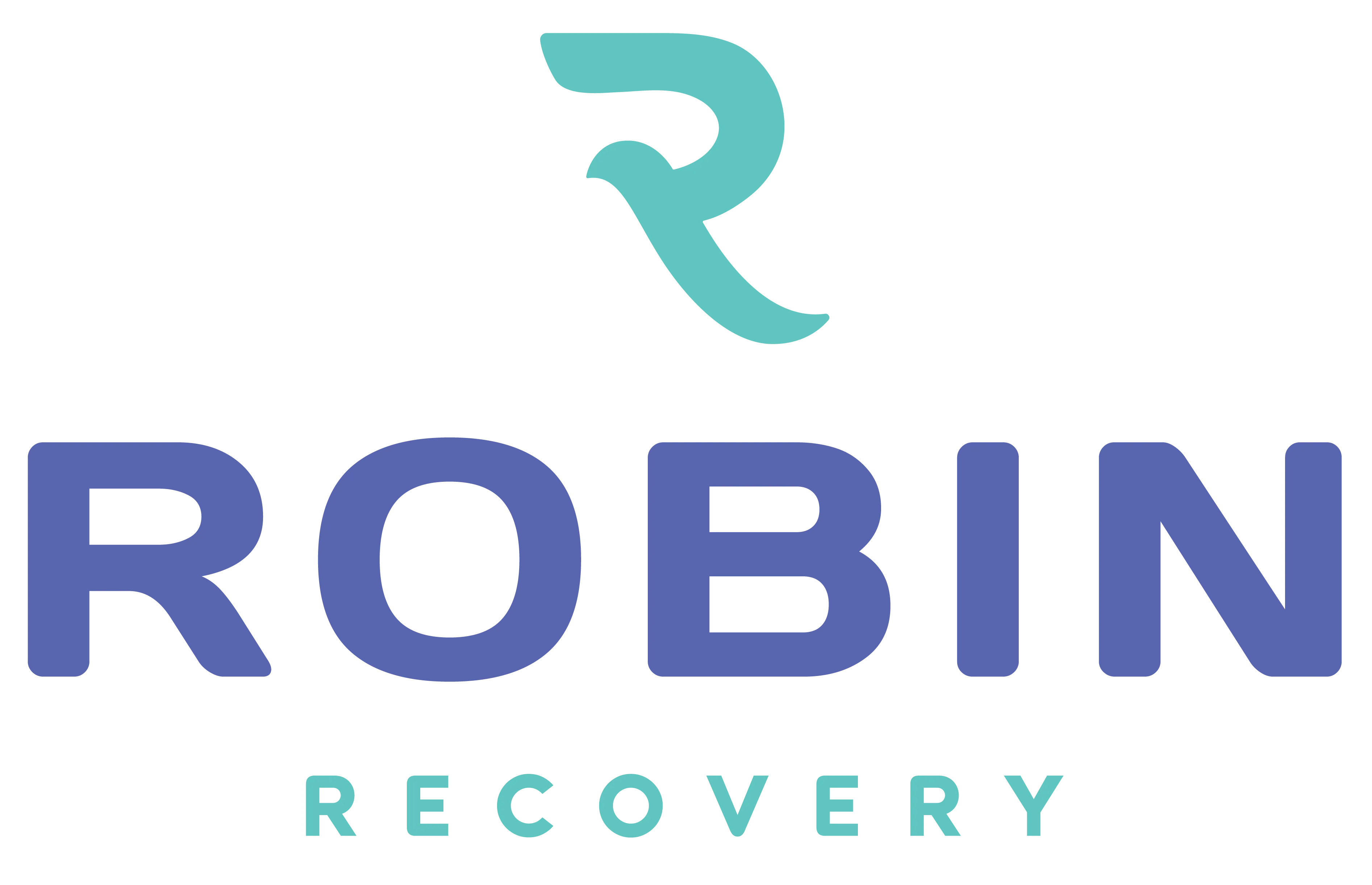
.svg)

.svg)

.svg)
.svg)






































































































